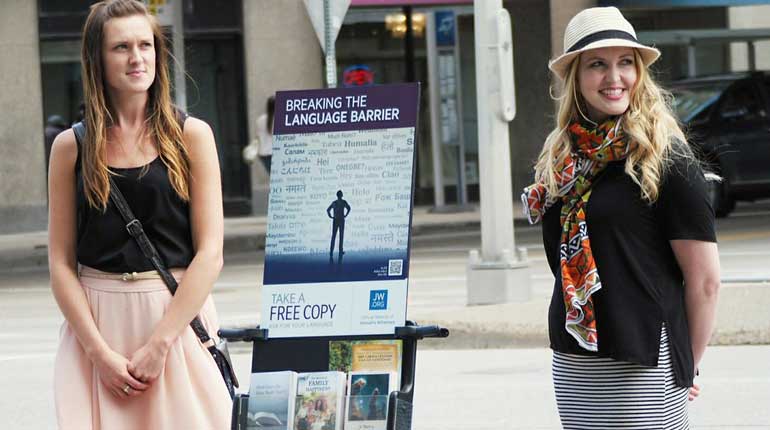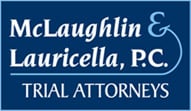The Catholic Church is not the only religious organization that has been hiding decades’ worth of sexual abuse within its walls. The Jehovah’s Witnesses have tried to conceal the sexual abuse of children within that religious order as well.
With more than 8.5 million followers worldwide, Jehovah’s Witnesses have an organizational structure that, not only has allowed sexual abuse to exist, but also has prevented victims from coming forward about the abuse they suffered. Jehovah’s Witnesses have a history of victim-shaming and turning a blind eye to acts of sexual abuse. Rather than reporting members accused of sexual abuse to law enforcement, the organization has tried to keep allegations of abuse a secret within its organization. Threats of being exiled from the sect’s religious communities often keeps Jehovah’s Witnesses’ members from reporting abuse.

Jehovah’s Witnesses Have Used Legal Loopholes to Hide Acts of Sexual Abuse
In 1884, the Watchtower Bible, a nonprofit corporation, was formed under the laws of the Commonwealth of Pennsylvania for the purposes of overseeing the work of Jehovah’s Witnesses. For more than 30 years, the Watchtower Bible has been instructing Jehovah’s Witnesses’ Elders to hide claims of child sexual abuse. Jehovah’s Witnesses have been able to get away with this unbridled secrecy because state laws allow religious organization to withhold reporting information that is learned through confidential spiritual communications. Jehovah’s Witnesses and the Watchtower Bible have used this loophole to their advantage. The Watchtower Bible released a memo to its congregation members instructing that any allegations of sexual abuse should be reported to the congregation’s legal department, rather than to law enforcement. This approach allows sexual abuse reports to be hidden within the subterfuge of attorney/client privilege claims. According to the Watchtower, not every individual who has sexually abused a child in the past is considered a predator; the Watchtower (and the Watchtower alone), not the local body of Elders and not local law enforcement or the Courts, determines whether an individual who has sexually abused children in the past should be considered a predator. This wrong-headed approach has allowed countless instances of sexual abuse of children within the religious organization to go unreported.
Jehovah’s Witnesses’ “Two-Witness Rule” Has Ensured That Hundreds of Victims Have Been Silenced
The Jehovah’s Witnesses not only fail to report crimes of sexual abuse, but they also dismiss complaints of abuse unless the victim is able to provide more than a single witness to the abuse. The organization has a “two-witness rule” which prohibits the organization’s Elders from even investigating allegations of sexual abuse unless the child can produce another witness to the crime. But because most incidents of sexual abuse do not take place in front of other witnesses, and instead occur in private, many legitimate claims of sexual abuse have gone unreported to outside authorities.
Since the 1990s Jehovah’s Witnesses Have Been Secretly Documenting Incidents of Sexual Abuse
The Jehovah’s Witnesses have gone so far as to collect information of sexual abuse within the organization and to store these accounts within electronic databases held confidential to anyone outside of the organization. In March of 1997, the Watchtower Bible sent a request to all 10,883 congregations in the United States asking congregation Elders to document reports of child sexual abuse. These requests were sent out in blue envelopes that contained a questionnaire pertaining to instances of child sexual abuse. Congregations were asked to write detailed reports about anyone within their congregation who had been accused of molesting a child. Specifically, they were asked questions about the type of abuse that occurred, the frequency of the sexual abuse, personal information about the perpetrator(s), how the perpetrator and victim were perceived by others in the congregation, how many people knew about the abuse, and what kind of reaction the community had to the allegations of sexual abuse. The Elders in the congregations filled out the questionnaires, placed them back in the blue envelopes, and sent them back to the Jehovah’s Witnesses’ headquarters. The information provided by the different congregations was then recorded and kept in a Microsoft Share Point file. The database is believed to have the names and locations of every known child abuser within the Jehovah Witnesses’ organization in the United States. Despite many Court Orders, the Jehovah’s Witnesses have refused to turn over this information to authorities, and to date the information in the database remains confidential. Their sex abuse secrets have been held in higher regard than the safety of their children.
While the Jehovah’s Witnesses are one of the most secretive and toughest religious groups to get information about, there have been millions of dollars in judgments awarded to victims in connection with abuse claims and the organization’s attempted cover-up. The Pennsylvania Attorney General’s Office has opened a Grand Jury Investigation into how Jehovah’s Witnesses’ leaders have handled allegations of child sexual abuse.
Contact Our Pennsylvania and New Jersey Child Sex Abuse Lawyers
While the Jehovah’s Witnesses are one of the most secretive and most difficult religious groups to investigate, there have been millions of dollars in judgments awarded to victims of the pervasive abuse of children within this secretive sect. The abuse is real and it is ongoing.
If you or someone you love is a survivor of child sex abuse in Pennsylvania or New Jersey, you need an experienced and skilled child sex abuse lawyer on your side. The child sex abuse attorneys at McLaughlin & Lauricella, P.C., have more than 100 years of experience representing victims, including child sex abuse survivors and their families across Philadelphia, Berks, Bucks, Dauphin, Delaware, Lackawanna, Lehigh, Luzerne, Montgomery, and Northampton Counties, as well as in the State of New Jersey. Contact us today toll-free at 1-855-633-6251 or fill out our confidential contact form to learn more about your legal options.



